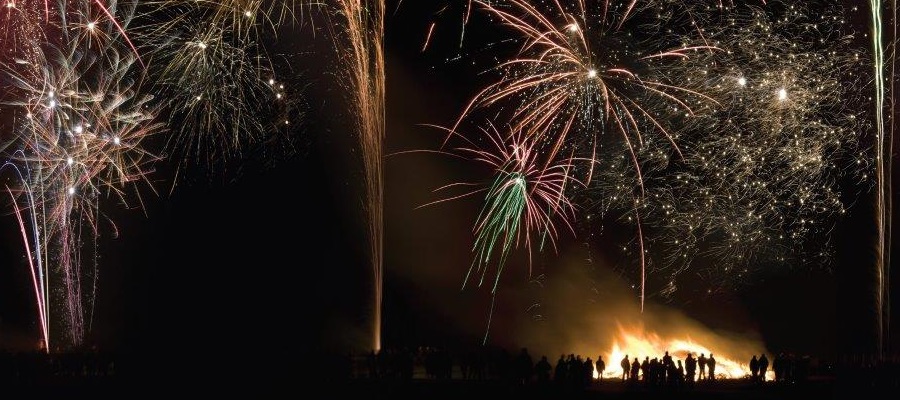Four hundred and fifteen years have passed since the events of November 5, 1605, which became known in history as Guy Fawkes Night or Bonfire Night.
Guy Fawkes Night originates from the Gunpowder Plot1 of 1605. It was a failed conspiracy2 by a group of provincial English Catholics to assassinate3 the Protestant King James I of England and replace him with a Catholic head of state.
Guy Fawkes was caught guarding a cache4 of explosives placed beneath the House of Lords, so the plot did not have any destructive consequences. Guy Fawkes was arrested, and some months later he and all the surviving conspirators were executed.
Immediately after Guy Fawkes’s arrest, people lit bonfires around London to celebrate the King’s survival. King James’s Council allowed the public to celebrate the King’s survival with bonfires, so long as they were “without any danger or disorder”. This made 1605 the first year that the plot’s failure and the survival of the King were celebrated. In the following January after Guy Fawkes and the surviving conspirators had been executed, Parliament passed the Observance5 of 5th November Act, commonly known as the “Thanksgiving Act”. Within a few decades Gunpowder Treason Day became the predominant English state commemoration, but as it carried strong religious overtones, it also became a focus for anti-Catholic sentiment. Puritans warned against the dangers of popery6, while during celebrations common folk burnt effigies7 of popular hate figures, such as the Pope. Towards the end of the 18th century children begged for money with effigies of Guy Fawkes, so 5 November gradually became known as Guy Fawkes Day.
Eventually in the 20th century Guy Fawkes Day became an enjoyable social commemoration, lacking much of its original focus. The present-day Guy Fawkes Night is usually celebrated at large organised events, centered on a bonfire with extravagant firework displays.
Janka Něničková
Vocabulary: 1 sprisahanie pušného prachu – spiknutí střelného prachu; 2 konšpirácia, ktorá zlyhala – konspirace, která selhala; 3 zavraždiť – zavraždit; 4 [kæš] úkryt; 5 slávenie, dodržiavanie zvyku – slavení, dodržávání zvyku; 6 pápaženstva, katolíctva – papeženství, katolictví; 7 sochy

